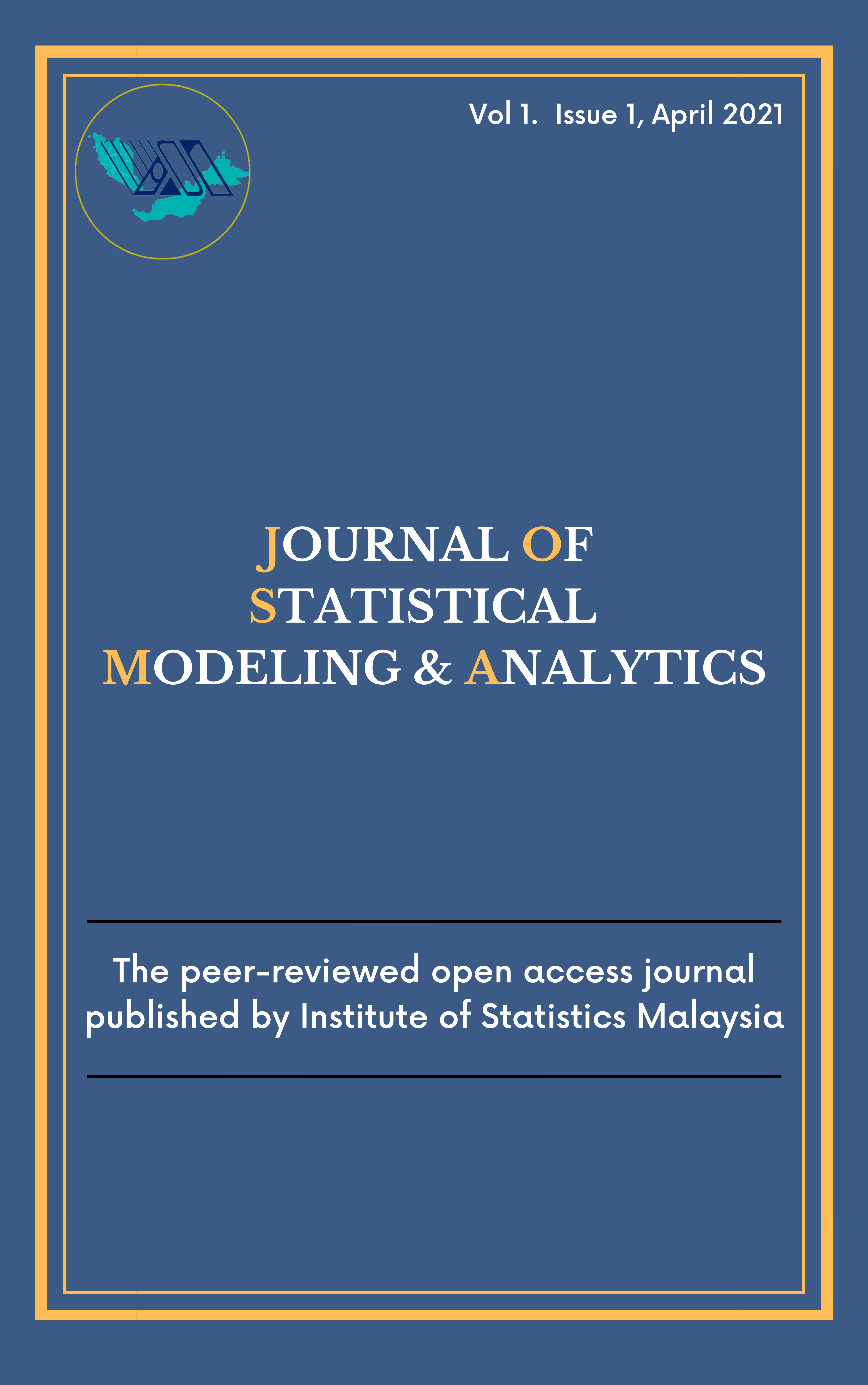Comparative Analysis of Classical and Modified Moses Test
DOI:
https://doi.org/10.22452/josma.vol3no1.4Keywords:
Equality of dispersion parameters, Moses test, random procedure, Sum of squaredAbstract
Moses test is a nonparametric method to test the equality of two dispersion parameters. The Moses test does not assume equality of location parameters, and this fact gives the test wider applicability. However, this test is inefficient since different people applying the test will obtain different values because of a random process. One sub-division may lead to significant results where another does not. To overcome the problem of uniqueness of the result, this study proposed to modify the random selection of the observation for the subsamples based on the ranking procedure to lead for a unique result for each solution. The original and modified Moses test were tested on the same data set. The finding shows that the result for both tests is similar in terms of decision and conclusion. The analysis revealed that the modified Moses test based on ranking approach has a smaller sum of squared values compared to the original Moses test. Thus, the variability of data for each subsample is decreased as well. Ranking approach can be used as an alternative to replacing the random procedure of selecting observations for subsample to overcome the problem of uniqueness in the test statistic.






